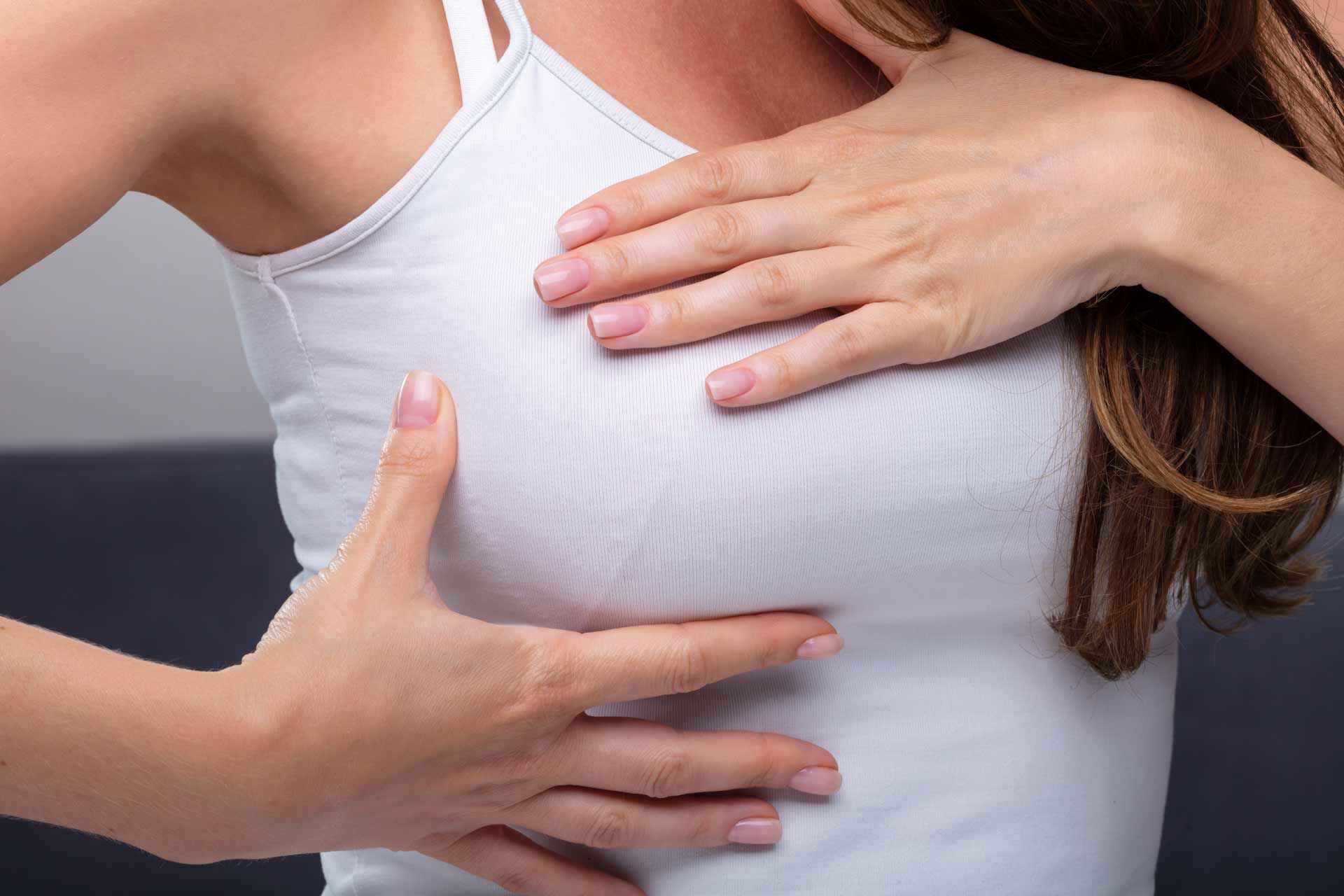Summarize This Article:
Summarize This Article:

Following the placement of a breast implant, fibrous scar tissue develops around it, forming a tissue capsule. The immune system generates protective capsules around foreign objects it identifies. Ordinarily, the tissue capsule is soft or mildly firm, inconspicuous, and aids in stabilizing the implant. However, in some instances, an abnormally rigid and dense tissue capsule forms, causing a condition known as capsular contracture.
 What is Capsular Contracture?
What is Capsular Contracture?In cases of capsular contracture, the scar tissue capsule that forms tightens and hardens around the implant. This can cause the breast to feel abnormally firm or misshapen, and can distort the appearance of the breast. It can also cause pain and displacement of the implant – for example, pushing the implant up higher on the chest.
Several factors can contribute to someone’s likelihood of developing capsular contracture, including:
Careful surgical technique, intraoperative pocket irrigation, and massage after surgery may help reduce the risk. However, some patients are simply more predisposed genetically to capsular contracture.
If you have had a breast infection or hematoma after surgery, have had previous capsular contracture with a prior implant, have an existing autoimmune disease like scleroderma or lupus, or develop seromas (fluid build-up around the breast), you may be at a greater risk for developing a capsular contraction. Individuals who undergo radiation therapy after receiving breast implants may also be at a higher risk.
The onset of capsular contracture can range from weeks to years after implant surgery. Symptoms often start gradually and progress slowly. If you experience any unexpected changes to the breast shape, texture, or symmetry, schedule an appointment with your breast surgeon to discuss the possibility of a capsular contraction. The main signs and symptoms of capsular contracture include:
Many cases of capsular contracture can be successfully improved with surgery. However, there is a risk of it returning even after treatment due to the underlying scar tissue formation process in some patients. Close follow-up and massage are often necessary to monitor for and minimize recurrence. Capsular contracture revision surgeries include:
Capsulectomy
In a capsulectomy, your surgeon removes both the existing breast implant and the surrounding tissue capsule. Subsequently, a new implant, encased in a dermal matrix material sheet primarily composed of collagen, is inserted. This material serves as an additional protective layer, prompting the formation of a new scar tissue capsule by your body.
Open Capsulotomy
In an open capsulotomy, your plastic surgeon endeavors to incise the tissue capsule enveloping the breast implant by making small incisions. Additionally, portions of the capsule may be excised to facilitate the capsule opening, providing the implant with increased freedom of movement. In certain situations, the surgeon might opt to replace your current implant with a new one.
Flap Reconstruction Surgery
In flap reconstruction surgery, your plastic surgeon eliminates the breast implant and reconstructs the breast using a flap of tissue transplanted from another part of your body, such as the abdomen or buttocks. An advantage of this approach is the absence of a risk for recurring capsular contracture, as tissue capsules do not form around flaps. However, it's essential to note that flap reconstruction is a more intricate procedure with a longer recovery period compared to capsulectomy or open capsulotomy.
The Institute for Advanced Reconstruction stands out from other surgical care centers through our unwavering dedication to the patient experience.
Although we take pride in offering cutting-edge treatments, our core mission revolves around patient care. We prioritize investing in individuals, addressing not only their medical needs but also striving to alleviate physical discomfort and emotional pain. In pursuit of this mission, we dedicate time to comprehensively understanding your concerns and helping you make informed decisions about your breast reconstruction surgery.
Dealing with capsular contracture may be daunting, but understanding the condition equips you to make informed decisions about your breast health. If you're experiencing symptoms or have concerns, schedule a consultation with our expert surgeons at The Institute for Advanced Reconstruction. Together, we can tailor a plan that suits your unique needs.



.jpg)

.webp)



